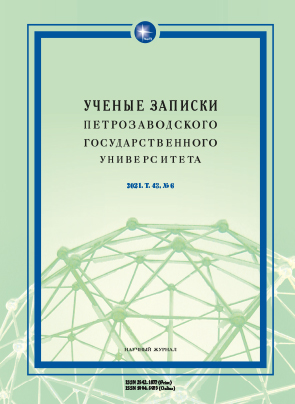ОСОБЕННОСТИ ПРОЯВЛЕНИЯ ИМПЕРАТИВНОСТИ В ТЕКСТЕ «УСТАВА МОРСКОГО» 1720 ГОДА
SPECIFIC FEATURES OF IMPERATIVENESS IN THE TEXT OF THE 1720 NAVAL CHARTER
Author(s): Natalia Viktorovna PushkarevaSubject(s): Language and Literature Studies, Theoretical Linguistics, Applied Linguistics, Russian Literature, Eastern Slavic Languages, 18th Century
Published by: Петрозаводский государственный университет
Keywords: history of the eighteenth-century Russian language; Peter the Great’s era; Naval Charter; imperativeness; formation of formal genres;
Summary/Abstract: The article examines linguistic means for expressing imperativeness in regulatory documents using the material of a text that was new for the Peter the Great’s era. The author identifies the peculiarities of the imperative situation in which the Naval Charter was applied, and determines its addresser and addressees taking into account Russia’s eighteenth-century historical reality. The addressees of the text were all maritime personnel, while the addresser cannot be clearly identified, since this role was played by both the Russian state built on the European model and the absolute monarch Peter the Great. Therefore, special pragmatic goals of the document are revealed as follows: regulating the actions of the addressees and training them according to the regulations provided in the Charter. The range of linguistic units that convey prescriptions and prohibitions in the studied text includes multi-style units. Imperativeness is expressed through infinitive forms, the future tense form with an auxiliary verb to have, conjugated verb forms, phrases with the particle da, and impersonal verbs with performative meaning. The use of linguistic means is associated with the subject of the prescription, the degree of specificity of the actions described, the extent of prohibition, and the severity of the offense for which the punishment was imposed. The form of expressing imperativeness could mark the socially weakened position of the addressee. All these facts suggest that the authors of the document searched for such linguistic forms of expressing imperativeness that would be understandable to the addressee and would correspond to new communicative and pragmatic tasks.
Journal: Ученые записки Петрозаводского государственного университета
- Issue Year: 43/2021
- Issue No: 6
- Page Range: 57-64
- Page Count: 8
- Language: Russian

